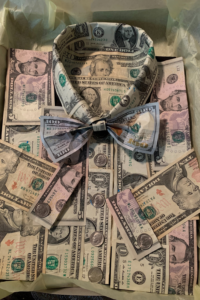
Overspending is one of the most prevalent self-sabotaging behaviors, especially for millennials. According to recent studies, 60% of people sabotage their own finances through patterns of overspending. Most people don’t grasp that emotions play a significant role in how we make, grow and spend money. If you assume a mere budget will solve your spending woes, you may be sorely disappointed.
Getting to the emotional root of your overspending is key to making significant positive changes. Most money problems do not involve finances at all; rather, they are linked more to low self-esteem, trauma recovery or a scarcity mindset.
Seven Reasons People Subconsciously Overspend
- To feel better. ‘Retail Therapy’ allows women to visualize themselves in a better life, where they’re dressed in sexy clothes surrounded by cool things. Purchases make these visualizations a reality.Buying something gives you a dopamine (feel-good hormone) hit, which lifts your mood and makes you feel more in control of your life, or provides a sense of excitement that may be missing in your life. Feeling stressed, upset or bored are uncomfortable emotions to sit with. Hence, our bodies learn coping strategies to move away from these feelings; i.e., to buy something which changes our emotional state, although it’s normally short-lived and turns into shame or guilt a week or so later. Overspending and impulsive buying are emotional coping mechanisms.
- You believe you’ve earned it. Spending is all about pleasure and reward. Making a purchase activates the same part of the brain that lights up when people drink alcohol or take drugs. Spending all month working hard (perhaps in a job you where you feel unappreciated), shopping can serve as a type of emotional therapy. Retail therapy.As humans, we’re biased toward our present selves and obtaining the things we want right now. So, when payday arrives, we can move into the feast-or-famine dynamic where we feel justified in buying ourselves something or spending more than we should on entertainment or eating out.
- Your container for receiving is low. We all have an invisible (because it sits in our unconsciousness), self-imposed container for how much money or wealth we are comfortable having in our life. We’re accustomed to certain states of being when it comes to money. Once we get close to that limit, we will find creative ways to get rid of any money that comes into our life. It’s internally uncomfortable to have more money than we unconsciously feel worthy of having. A typical outlet is to spend, whether it be for ourselves or others.
- Compensation for childhood deprivation. Suppose you grew up in poverty in the 1960’s or were deprived of the things you wanted as a child. like the Barbie doll all the other girls at school had, or had to wear second-hand clothes when I longed to wear the trendy togs the other kids wore In that case, we can go down the path of giving our ‘wounded child’ the things she never got. Treating ourselves becomes a default strategy. The problem is we can’t change the past or what we missed out on, using external solutions like overspending. Ask yourself, “Does buying myself this new this new dress promote my self-healing? What must I really do to heal my childhood deprivation? Unearthing your past relationship with money and what you lacked, can help you understand and heal your current relationship with it.
- Low self-esteem. What if getting yourself into debt or chronic overspending has more to do with low self-esteem than your love of designer clothes? If you don’t feel good about yourself, feel like you’re not enough, maybe you may buy stuff to look better or feel more worthy, or we spend on others to get their acceptance and love. We can have a belief that having the right clothes, on-trend makeup and the right look will earn people’s respect and admiration. At some stage, we need to accept that esteem and confidence are an inside job because you’ll never have enough until you feel that you are enough.
- Being in holiday mode. Going on holiday gives you a license to relax physically, mentally, as well as financially. In fact, you can feel like you’re on holiday from real life, so you aren’t thinking rationally about finances. Yes, you should be able to indulge more than usual on holiday. However, if you intentionally plan ahead and put a cash buffer in place, you won’t fly home with crippling credit card debt.
- To impress others and peer pressure. Human beings are susceptible to social pressures. ‘Keeping up with the Joneses’ is literally hard-wired in our DNA as it relates back to the caveman era. Being marginalized by your tribe was the greatest threat to survival so the fear of being kicked out or dismissed by your social group is still part of our instinct today. When your friends are ordering $25 cocktails and driving brand new cars every second year, it’s natural to want to belong to that crowd. Strategies for keeping your spending under control are more effective when they align with your psychology and biology.
Do any of these resonate with you?
If so, accessing the emotional root of your money problems is critical to overcoming your overspending. First off, you must uncover the emotional reasons why you overspend, understanding what you’ve been protecting’ yourself from, then developing step-by-step internal and external strategies to install healthier patterns of decision-making.
Are you ready to replace your feelings of guilt and thoughts of financial failure, with financial freedom and saving more money than ever before? The choice is yours!
